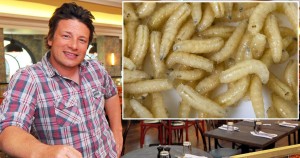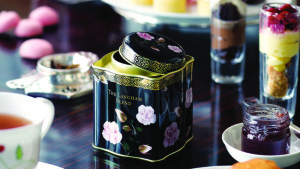In related things Philly, Don Sapatkin writes that back in 2002, with at least 85 people sickened by Salmonella, Bucks County health inspectors discovered that kitchen workers at a Lone Star Steakhouse on Route 1 were washing tomatoes and raw chicken in the same sink. They shut the place down until an additional sink could be installed to prevent cross-contamination.
 “We thought we had it nailed,” recalled Bill Roth, who oversees food safety for the county health department.
“We thought we had it nailed,” recalled Bill Roth, who oversees food safety for the county health department.
Not exactly. When the Centers for Disease Control and Prevention analyzed victims’ stool samples, Roth recalled, they noticed something completely different: The same strain of Salmonella had been found elsewhere. Connecting the dots, federal investigators traced the outbreak to contaminated tomatoes from a Virginia farm that were making gastrointestinal life very unpleasant for hundreds of people in 26 states.
The missing-sink violations cited by inspectors at the local steakhouse had nothing to do with it.
The case illustrates both the strengths and weaknesses of restaurant inspections. On the one hand, they catch only a tiny percentage of potential problems, and only on the day that inspectors visit. On the other hand, they keep restaurateurs on their toes – using the same sink to rinse raw produce and uncooked poultry is a recipe for diarrhea, even if it wasn’t the cause that time.
“Put it this way,” said David Damsker, director of the Bucks County Health Department. “If you leave some children alone, they will be responsible. Some other children, take away parental supervision . . . and some places would be incredibly horrendous.”
Bucks provides restaurants with a lot of supervision. Its inspectors automatically visit the vast majority of the county’s 2,600 food establishments every six months – twice as often as routine inspections are performed in Philadelphia and every other county in the region except Montgomery (also twice a year).
Repeat inspections to follow up on violations are scheduled within 10 days, Bucks County officials said, compared with 30 in the city.
Yet Bucks finds fewer violations. And fewer violations mean fewer repeat visits – every inspection is a surprise – to follow up on the routine inspection.
Inspectors there recorded an average 1.1 serious violations per visit in 2014 compared with 1.6 for Philadelphia, according to an Inquirer analysis of inspection reports. The disparity was greater for all violations combined: 3.2 per inspection in Bucks vs. 6.0 in Philadelphia.
Whether the lower number of violations in the county means Bucks restaurants are cleaner is unclear. Philadelphia may simply have a higher proportion of full-service restaurants, which do more complex food preparation than convenience stores or other food establishments. That means more can go wrong, and can be spotted by inspectors.
But food safety officials in Bucks County speculated that their policy of routine inspections twice a year – a goal that most localities don’t have the resources to meet – are responsible for the difference.
“We go more for education than for enforcement,” Damsker said. More-frequent routine visits give kitchen workers a better understanding of food-safety issues, he said.
The emphasis on education has gained traction nationwide over the past decade. Throughout the region, most jurisdictions, including Philadelphia, now perform what are known as “risk-based inspections.”
They put a higher priority on violations that are known to increase the risk of foodborne illness than on cosmetic issues such as missing ceiling tiles. One of the highest priorities – and among the most common violations – is having an employee present at all times who is trained to recognize problems such as a refrigerator that isn’t quite cold enough to kill harmful bacteria.
 Local restaurant menus were sampled at different periods of operation. The average total plate count (TPC) was 28 (0–210) cfu/15 cm2 menu sampling area during “busy” periods and 15 (0–85) cfu/15 cm2 menu sampling area during “less busy” periods. The staphylococcal count averaged 6 (0–83) cfu/15 cm2 during busy periods and 2 (0–25) cfu/15 cm2 menu sampling area during less busy periods. Escherichia coli was transferred to menus at 11.17% of the hand population with a high variability between subjects (10.45% standard deviation). Survival of bacteria in menus was 1.40% after 24 h and 1.34% after 48 h, respectively.
Local restaurant menus were sampled at different periods of operation. The average total plate count (TPC) was 28 (0–210) cfu/15 cm2 menu sampling area during “busy” periods and 15 (0–85) cfu/15 cm2 menu sampling area during “less busy” periods. The staphylococcal count averaged 6 (0–83) cfu/15 cm2 during busy periods and 2 (0–25) cfu/15 cm2 menu sampling area during less busy periods. Escherichia coli was transferred to menus at 11.17% of the hand population with a high variability between subjects (10.45% standard deviation). Survival of bacteria in menus was 1.40% after 24 h and 1.34% after 48 h, respectively.









